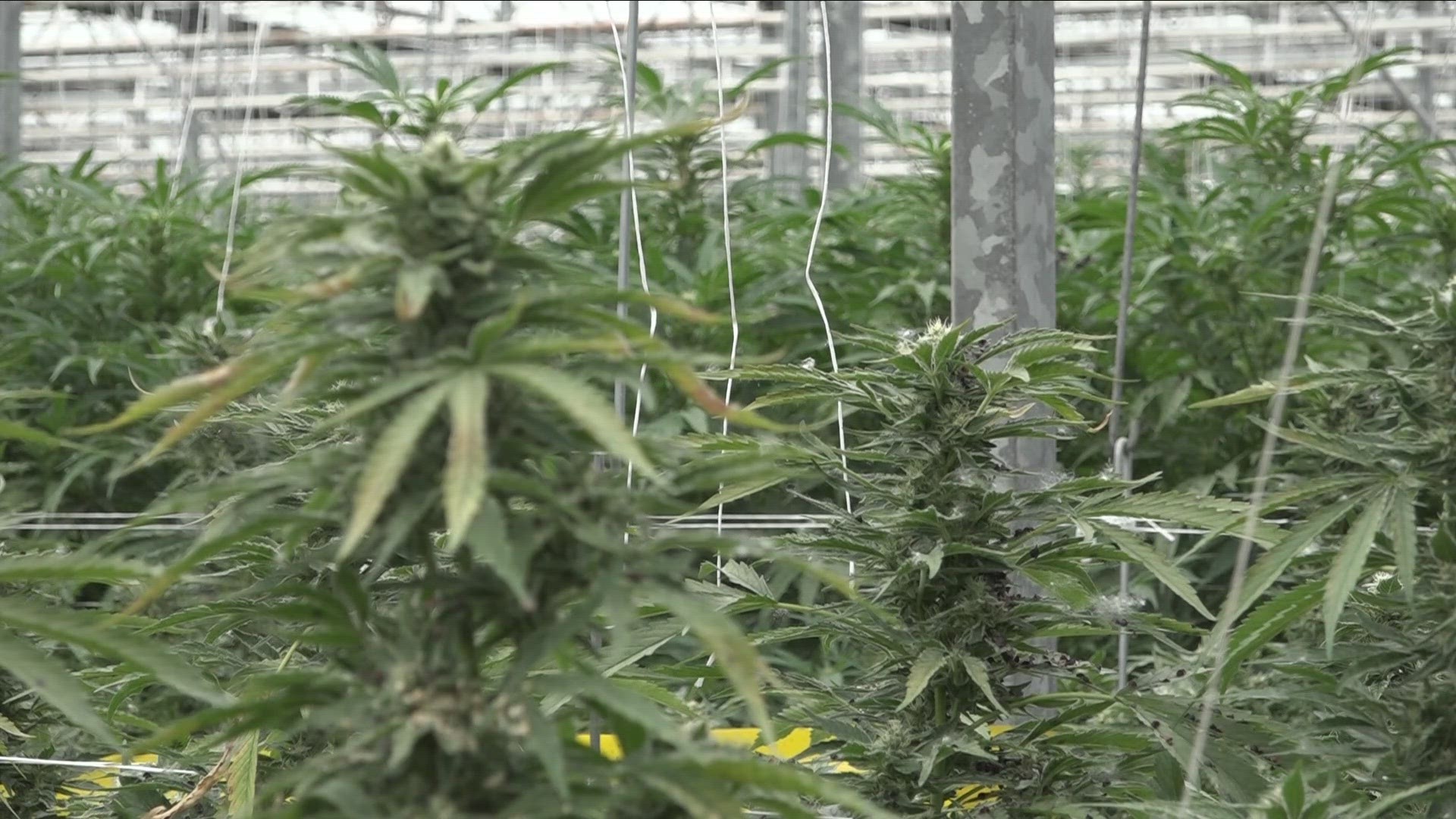WHEATFIELD, N.Y. — As the state’s legal cannabis market continues to develop, the Office of Cannabis Management has placed a bet on people who used to grow weed illegally but could one day supply a licensed dispensary.
The Cannabis Compliance Mentorship Program or CCTM wrapped up in April and while it will be many months before the state knows whether its bet paid off, for Christopher Scinta it already has.
“It’s something that has really prepared us to hit the ground running,” said Scinta.
The program is the first of its kind in the country. The state admitted nearly 250 people and around half of them were legacy growers or rather, people who had been growing weed prior to it being legal like Scinta.
“We were relegated to backyards and basements,” he said.
Scinta and his business partner took the 10-week course to prepare themselves to apply for a cultivator license from the OCM. He explained it was an eye-opening experience to learn about New York’s legal market and a very different kind of business from the one he had been running.
“Introducing us to all of the facets of a legal market. Things like testing, track and trace, various protocols that have to be followed to ensure a high-quality and a safe product. There are so many things we have to do, keep track of the plants that we're growing the different strains that we're growing,” Scinta said.
“You know we take those basic skills and build upon it to enhance their ability to grow,” said Paal Elfstrum, the Founder and CEO of TruCann and a licensed New York State cultivator.
Elfstrum was a mentor for the CCTM program and taught different growing techniques like the ones he uses at his massive Wheatfield Gardens facility.
“A lot of the mentees get to learn not only through the webinars that we've hosted but also come to a facility like this and get their hands dirty and see what it takes because this is not easy,” Elfstrum said.
While a multi-acre greenhouse won’t for every grower, the techniques are replicable. Elfstrum and his team are preparing to harvest 5,800 plants in one of their greenhouses in a couple of weeks.
“There's just a lot of history, just a lot of culture, and a lot of value to bring [legacy growers] into the regulated market,” said Damian Fagon, chief equity officer at the Office of Cannabis Management.
Fagon projected that for every dispensary that opens three cultivators will be needed to supply enough product.
With upwards of 300 cultivators currently however and only 15 dispensaries, some existing farmers have expressed concern about the rollout and have questioned whether they can truly succeed in the space.
2 On Your Side asked Fagon whether OCM should be focused more on existing growers rather than future ones.
“It's a good question and the optics are important too because you know what ultimately you have to do when building a supply chain is there are a thousand moving pieces that you're constantly working on at the same time,” said Fagon.
“It was just a lot easier for people to grow [cannabis] than it was to sell it and that mismatch has led to an imbalance in our supply chain right now that we're working on but going forward," he added.
Fagon explained as a former hemp farmer he is "very attune to the issues" and knows what it's like to not have a place to sell something that you poured your savings into.
"We're not going to roll out a bunch more cultivation licenses until we have enough stores," Fagon said.
The mentorship program does not guarantee Scinta or other graduates a cultivation license which has led others to question whether the program is really worth it including one Rochester grower who was profiled by the New York Times.
Both Scinta and Elfstrum however believe New York has set up mentees for success and by engaging with a group of growers that no other state has historically touched the OCM is working to ensure the future cannabis supply chain is robust and more equitable than any other.
“Having as many people do it right is I think the right thing to do,” said Elfstrum.
“The program really brought together a diverse group of legacy growers and other people who were informally involved with the industry and has given them the tools and the education that they need to succeed,” Scinta said.
It is not clear if the state will offer the mentorship course again.
RELATED:

